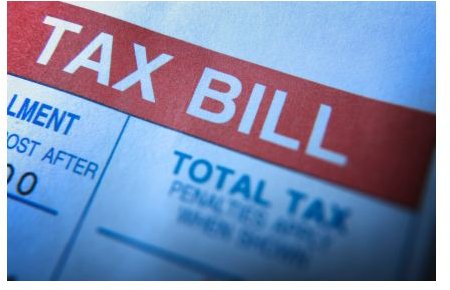Consequences of Failure to Pay Property Taxes
Short Term Consequences
When you purchased your home, your lender may have offered you the option of including your property insurance and property taxes with your monthly morgage payments. For those who accepted this arrangement, the taxes are paid out of an escrow account directly from your mortgage holder to the municipality. In these cases, as the homeowner, you are not at risk since the property taxes would be paid automatically. Property taxes are one of the added financial burdens that are accepted when someone decides on home ownership.
Homeowners who have elected to pay their property taxes outside of their mortgage payment will be issued a quarterly bill by the municipality. In most municipalities (but not all), these bills arrive on a quarterly basis and have a specific due date, generally less than thirty (30) days. Homeowners who failed to pay property taxes on time may also find a charge for a late fee as well as added interest fees which make the bill even larger. Homeowner’s who fail to pay their property taxes on time may also have the municipality place a tax lien on their home, which would have to be paid out of mortgage proceeds if the home were to be sold or refinanced.
Longer Term Consequences
Over the long term, if you have failed to pay property taxes, there are a number of consequences that could occur. In most municipalities, the taxing agency is allowed to notify your lender that your property tax is unpaid. The reason they are allowed to do this is that tax liens are always considered to be of a higher priority than a mortgage lien. If you have failed to pay your property taxes and your lender is notified, the following may occur:
A) Lender pays outstanding amount - The lender may elect to pay the outstanding balance of your property taxes. Those lenders that do this have the right to demand that your future tax bills be paid from escrow as well.
B) Tax lien placed on property - If you are already behind in your mortgage payment, the lender may elect to not pay the outstanding tax lien. In this case, the county (or other municipality) may elect to place a tax lien on your property.
Homeowners who have failed to pay property taxes may lose their homes through a tax sale. The tax sale is to recuperate the amount of past due property taxes. In most cases, those homeowners who have an outstanding mortgage may also be facing foreclosure if they are not able to pay their mortgage and their property taxes. The time frames needed for foreclosure sales may help a homeowner repay the past due property tax and mortgage payments and avoid foreclosure.
Avoiding Tax Problems
When a homeowner is having financial difficulty, they may have failed to pay property taxes. Some homeowners may be better off contacting their lenders and asking about possible options including escrow payments for taxes. This would involve a larger monthly mortgage payment however, these homeownes will not risk losing your home because they have failed to pay property taxes. Tax challenges carry many risks including home foreclosure. Those who are considering selling their home may face a loss if the penalities and added interest continue to increase while taxes remain unpaid. Resolving these issues should be a priority for all homeowners.
References
Sources:
- HUD - FAQs About Escrow Accounts for Consumers
- Cornell University Law School ad valorem tax
- Personal experience working with borrowers
Image Credits
- Tax bill via istockphoto.com/DNY59
